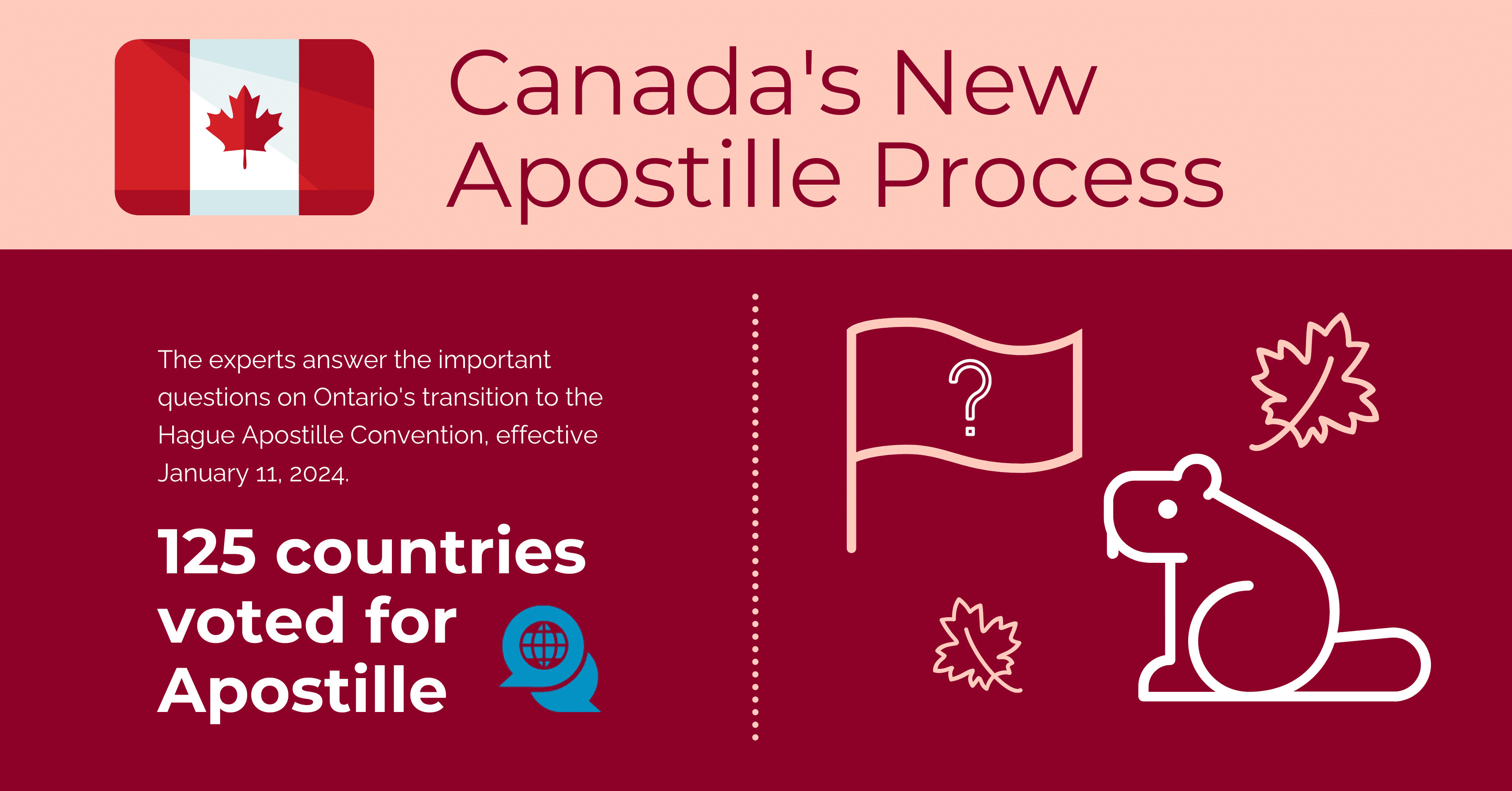
What Does Canada Joining the Apostille Convention Mean?
Introduction to Apostille Convention
What is the Apostille Convention?
The Apostille Convention, or the Hague Convention Abolishing the Requirement of Legalization for Foreign Public Documents, simplifies the process of authenticating documents for international use. Instead of going through several authentication stages, a single Apostille certificate suffices.
Why is it Significant?
The Convention, in essence, fosters smoother international relations. It reduces the red tape associated with legalizing foreign public documents, thus facilitating international business, legal procedures, and personal transactions.
Canada and the Apostille Convention
Canada's Relationship with the Convention
Historically, Canada has not been a part of the Apostille Convention. Instead, it's utilized a system of "authentication and legalization," a more time-consuming process.
Why Canada didn't Join Earlier
Canada's non-participation was primarily due to its system that differed from the Apostille process. Changing to a new system would require significant administrative alterations and legislation updates.
Canada Joining the Apostille Convention
Reasons for Canada's Decision
Globalization and increasing cross-border interactions have necessitated a simpler process. By joining the Apostille Convention, Canada aims to facilitate smoother business and legal transactions with other countries.
The Process of Joining
Joining involves a series of administrative and legal changes, including altering how public documents are authenticated for foreign use and adjusting relevant laws to accommodate the new process.
Implications for Canada
For Individuals and Corporations
The biggest winners are those frequently dealing with international documents. Individuals, corporations, and institutions can now process documents for international use more efficiently.
For Government and Legal Systems
The change also means modifications for government departments and the legal system. They need to adapt to issuing and recognizing Apostille certificates.
The Future of Canada and the Apostille Convention
Predicted Impact and Benefits
Joining the Apostille Convention is predicted to enhance Canada's global business environment, making it more attractive to foreign investors. It will also benefit Canadians working or studying abroad.
Possible Challenges
As with any transition, challenges are expected. They might include training personnel, educating the public about the new process, and ensuring a smooth transition from the old system.
Conclusion
Canada's decision to join the Apostille Convention marks a significant shift in its approach to international document authentication. It will undoubtedly bring benefits but not without some hurdles along the way.
FAQs
1. What is the Apostille Convention?
The Apostille Convention, also known as the Hague Convention, is an international treaty drafted by the Hague Conference on Private International Law. It specifies the modalities through which a document issued in one of the signatory countries can be certified for legal purposes in all the other signatory states.
2. Why hasn't Canada joined the Apostille Convention until now?
Canada hasn't joined the Apostille Convention until recently due to its unique system of document authentication that differed from the Apostille process. Transitioning to this new system required considerable administrative alterations and legislative updates.
3. What does Canada joining the Apostille Convention mean for its citizens?
Joining the Apostille Convention simplifies the process of legalizing Canadian documents for international use. This is particularly beneficial for Canadian businesses with international operations, Canadians working or studying abroad, and anyone else regularly dealing with international documents.
4. What challenges might Canada face in joining the Apostille Convention?
Potential challenges may include training governmental and legal personnel to handle the new Apostille process, public education about the changes, and ensuring a smooth transition from the old system of document authentication to the new one.
5. How will joining the Apostille Convention affect Canada's international relations?
Joining the Apostille Convention is likely to enhance Canada's international relations by facilitating smoother and more efficient legal and business transactions with other countries. It's also expected to make Canada more appealing to foreign investors.

